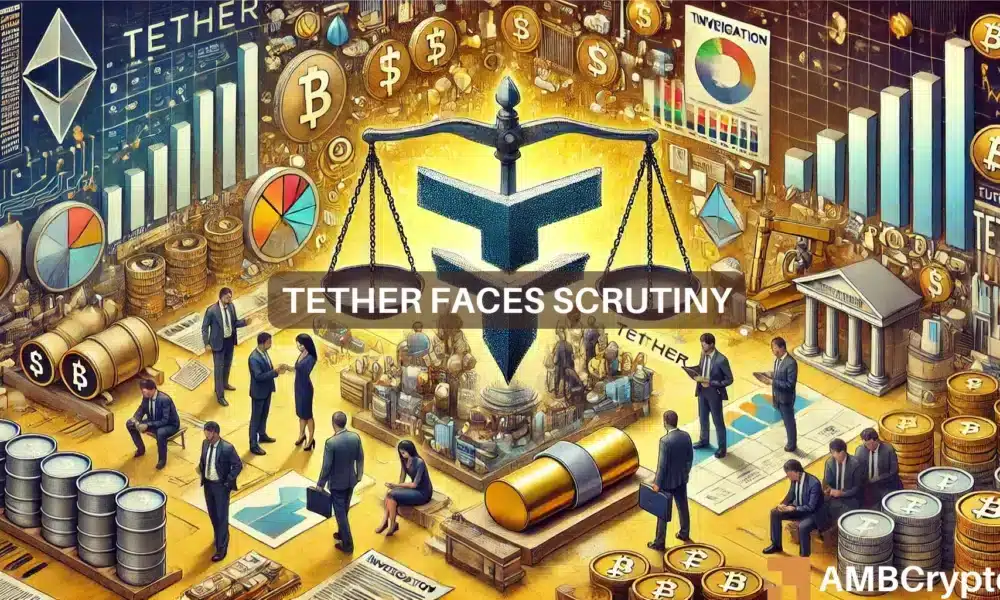
- Tether faces an investigation over alleged ties to illegal activities and sanctioned entities.
- Despite the scrutiny, Tether explores opportunities for growth in the commodity sector.
Stablecoins have emerged as a transformative force in the cryptocurrency landscape this year, particularly highlighted by the competition between Circle’s USDC and Tether’s USDT.
Visa on-chain analytics further indicated that USDT recorded a transaction volume of $6.47 billion, significantly overshadowing USDC’s $2.08 billion as of 27th October.
Source: Visa on-chain analytics
Tether under threat?
Amid this surge in USDT’s popularity, the Wall Street Journal reported that the U.S. Attorney’s Office in Manhattan was investigating USDT for potential involvement in illegal activities, including drug trafficking, terrorism financing, and money laundering.
However, things took a different turn when Tether’s CEO claimed that there were no signs of a federal probe.
Taking to X, Tether’s CEO Paolo Ardoino noted,
“As we told to WSJ there is no indication that Tether is under investigation. WSJ is regurgitating old noise. Full stop.”
Tether echoed this sentiment and asserted,
“These stories are based on pure rank speculation despite Tether confirming that it has no knowledge of any such investigations into the company.”
They added,
“The article also carelessly glosses over Tether’s well-documented and extensive dealings with law enforcement to crack down on bad actors seeking to misuse tether and other cryptocurrencies.”
However, WSJ stood firm suggesting that investigators were examining whether the stablecoin has inadvertently facilitated transactions for sanctioned entities.
What’s going on with Tether?
For those unaware, the U.S. prosecutors were investigating the stablecoin provider’s over allegations of its involvement in illicit activities particularly in relation to sanctioned groups such as Russian arms dealers.
Additionally, the Treasury Department was contemplating sanctions that would bar U.S. citizens from transacting with USDT, which boasts an impressive trading volume averaging $190 billion daily. Concerns about Tether’s connections to national security issues, including North Korea’s nuclear ambitions and ties to Mexican drug cartels, have intensified scrutiny of the stablecoin.
In light of these accusations, Tether has firmly denied any wrongdoing, highlighting its commitment to cooperating with law enforcement and recent compliance measures. This included freezing 1,850 wallets and bolstering its regulatory framework with expert hires.
What’s more to it?
The investigation has drawn comparisons between Tether’s operational practices and those of FTX. Further exacerbating doubts about its business model and adherence to regulations. Reports also indicate that USDT may have enabled users in countries like Venezuela and Russia to bypass sanctions. This raised alarms about the potential misuse of USDT by state-owned enterprises and criminal organizations.
Despite the ongoing scrutiny surrounding its operations, USDT was actively pursuing several strategic developments for the upcoming year.
Recent reports indicated that the stablecoin issuer is considering an entry into the commodity sector, which could provide significant opportunities for growth.
If successful, this venture could enable USDT to capitalize on credit-starved businesses. This would position Tether as a key player in a new market while potentially enhancing its revenue streams.



















